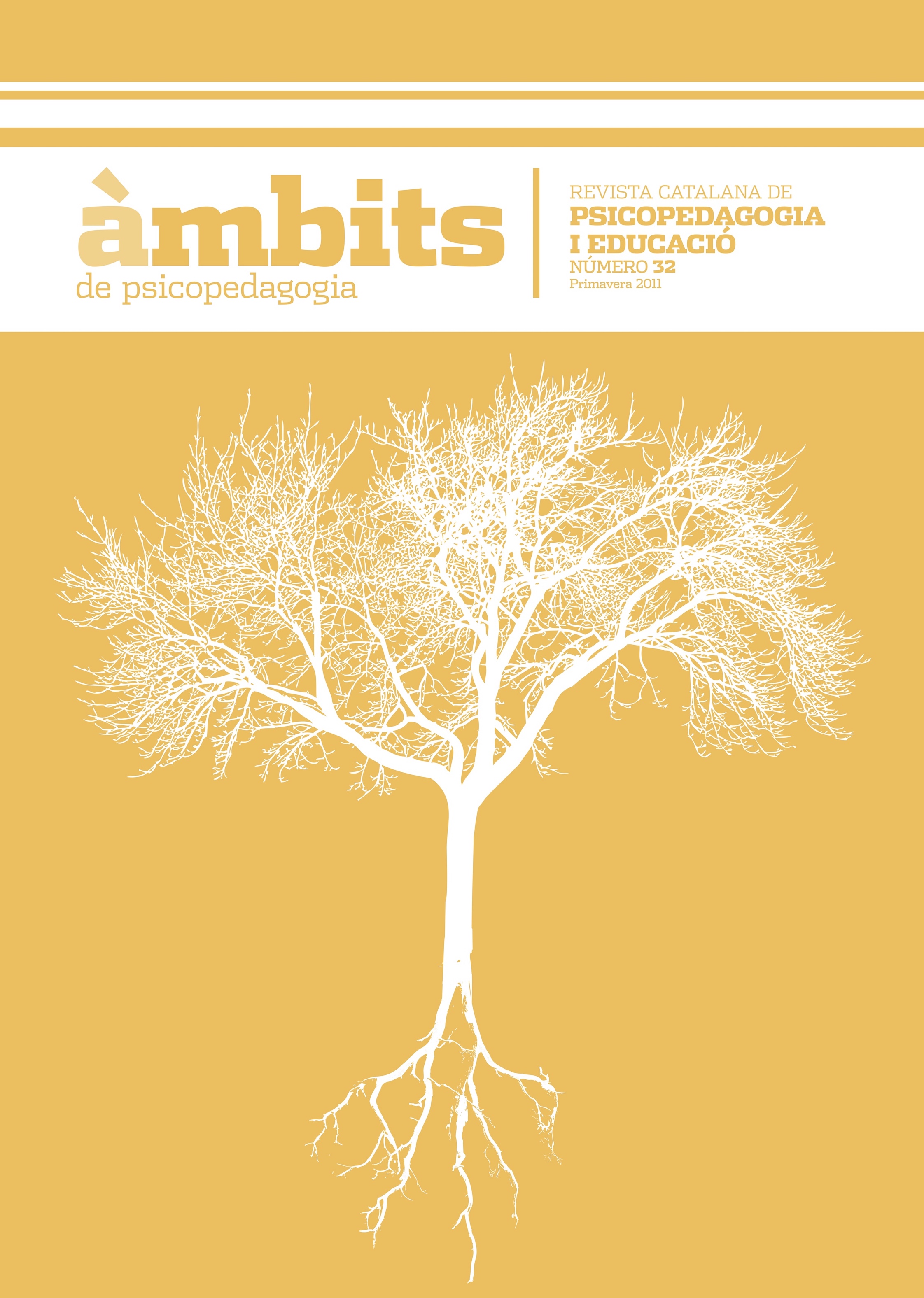Behaviors of exclusion and mistreatment between peers in infant schools
Abstract
This paper is a reflection about the importance of early intervention in the peer rejection behaviours, in order to prevent violence and bullying. Reference is made to an intervention carried on in kindergarden. In this experience, sociometric techniques were used to find pupils at risk, and through systematic observation in the courtyard, we find children involved in aggressive behaviour in the playtime. There is a relationship between the status of "rejected" and involvement in aggressive behavior toward peers.
References
Barudy, J. (2010). 1r Congreso Europeo de Resiliencia. Barcelona: UAB 22 octubre.
Caplan, M.; Vespo, J., Peterson, J., Hay, D.F (1991). Conflict and its resolution in small groups one- and two-year-olds. Child Development, 62, pp 1513-1524.
Coie, J.D., Dodge, K.A., Coppotelli H. (1982) Dimensions and types of social status : A cross-age perspective Developmental Psychology 18 (4) pp 557-570
Coie, J.D., i Dodge, K.A. (1983). Continuities and changes in children’s social status: a five year longitudinal study. Merrill-Palmer Quartely, 29, pp 261-282.
Collell J., Escudé C. (2003). El maltractament entre iguals al parvulari: una aproximació al fenomen de la victimització relacional. Àmbits de Psicopedagogia, 7, pp 16-20
Crick, N.R., Casas, J.F. i Mosher, M. (1997). Relational and Overt Aggression in Preschool. Developmental Psychology, 33 (4), pp 579-588.
De Wall, C. Twenge J., Gitter S., Baumeister R. (2009) It’s the Thought That Counts: The Role of Hostile Cognition in Shaping Aggressive Responses to Social Exclusion . Journal of Personality and Social Psychology vol. 96 (1), pp 45-59
Dodge, K., Landsford, J., Burks, V.E., Bates, J.E, Pettit, G.S., Fontaine, R., Price, J.M. (2003). Peer rejection and social-information processing factors in the development of aggressive behavior problems in children, Child Development, 74 (2) pp 374-393
Garcia-Bacete, J. Sureda, I., Monjas Mª Inés (2010) El rechazo entre iguales en la educación primaria: Una panoràmica general. Anales de Psicología vol. 26, pp 123-136
Hartup, W. W. (1992). Having Friends, Making Friends and Keeping Friends: Relationships as Educational Contexts. ERIC Digest. Champaign, IL: ERIC Clearinghouse on Elementary and Early Childhood Education. ED, pp 345 854.
Katz, L. G., & McClellan, D. E. (1997). Fostering Children’s Social Competence: The Teacher’s Role. Washington, DC: National Association for the Education of Young Children. ED 413 073.
Kingston, L., Prior, M. (1995). The Development of Patterns of Stable, Transien, and School-Age Onset Agressive Behavior in Young Children, Child and Adolescent Psychiatry, 34 (3), pp 261-395.
Kochenderfer, B., i Ladd, G. (1996). Peer Victimization: Cause or Consequence of School Maladjustment Child Development 67, pp 1305-1317.
Perren, S. (2000). Kindergarten Children Involved in Bullying: Social Behavior, peer relationships, and social status (2000). Inaugural dissertation der Philosophisch-historischen Fakultät der Universität Bern.
Rojas Marcos, Luis (1998). Las semillas de la violencia. Madrid: Espasa-Calpe.
Villanueva, L., Clemente, R. i García-Bacete, F. J. (2000). Theory of Mind and Peer Rejection at School, Social Development, 9 (3).
Villanueva, L., Sorribes, S., Isert, E., (1997). Estabilidad de las técnicas sociométricas en la etapa de Educación Infantil. Jornadas de Foment de la Investigació. Universitat Jaume I.
Downloads
Published
Issue
Section
License
The authors maintain their copyright and give the right to the first publication of the work to the journal, registered under a Creative Commons Attribution-Non Commercial-NoDerivs license. This license allows others to download the works and to share them with others as long as they credit the author, but it does not allow for any kind of modification or commercial use.















